Agile growth despite challenges
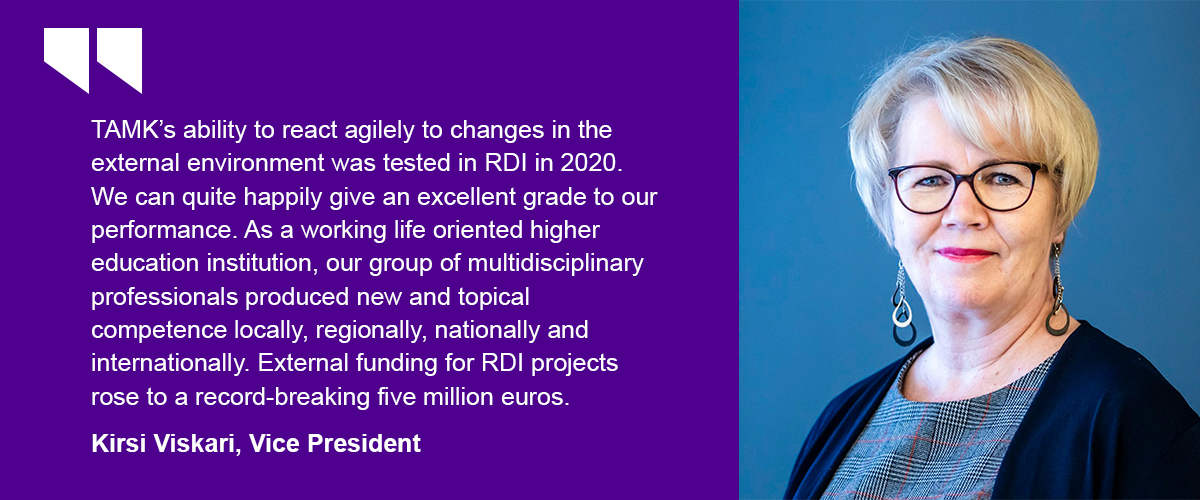
Research, development and innovation (RDI) continue to grow despite the corona challenges.
Our project operations expanded delightfully in 2020 and the development trend of previous years remained good. Different stages of the corona pandemic and related changes in practices required a lot of adaptation from the staff, project partners and target groups and an innovative approach to project preparation and implementation within the limits of the restrictions. The year will be remembered for agile introduction of new digital tools. Finns’ good digital skills stood out in international project cooperation.
Strength from networks
The Tampere Universities community developed its network cooperation. Examples of it are development of a new wellbeing centre next to Tampere University Hospital, preliminary work for corona recovery funding and advocacy and preliminary work for international RDI funding.
Tampere Universities developed their regional partnerships by concluding strategic partnership agreements with the City of Tampere and the Finnish broadcasting company Yle. The main themes of the partnership agreement with the City of Tampere are student friendliness, attraction and keeping of talent, international Tampere and renewable partnership. The partnership agreement with Yle focuses on being a pioneer in future media, media education and media literacy. We also made a cooperation agreement with Tampere Trade Fairs to promote digitalisation of the event field.
Structural funds remained an important source of external RDI funding. We also had new projects funded by national sources, such as Business Finland, and international sources, such as Interreg, Erasmus+ and Horizon 2020.
TAMK, the City of Tampere, Ahlman and Ekokumppanit received over a million euros of EU-based Horizon 2020 funding for their FUSILLI project. The project guides European cities and urban areas towards healthy, sustainable and safe food systems.
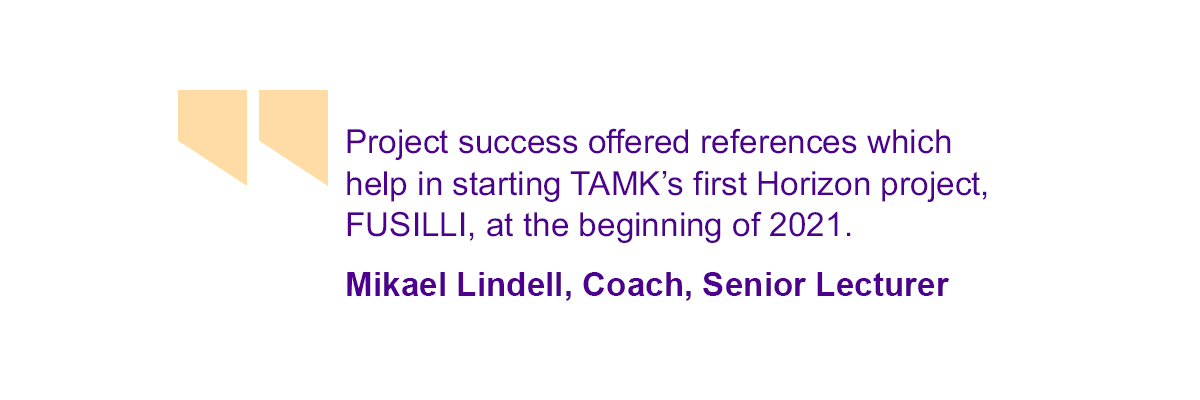
Good-quality impact
TAMK’s impact leaders and research groups worked actively on TAMK’s new strategic focus areas. The multidisciplinary focus areas – learning in working life and international networks, use of new technologies as well as ecological innovations and sociocultural challenges – are related to RDI, development of education and regional impact. We also increased our impact with multi-channel and intensive project communication.
TAMK is strongly profiling as an expert in the professional use of genetic and genomic data in health care. A video produced by the Profitu project showcases briefly the main idea: Profitu: Genetic Map – A Pathway To Health. During 2020, the genetic and genomic comprehension was integrated into several operational areas at TAMK.
The Virtual Lab for Social and Health Care, which was opened on the main campus in August 2020, is a research, development and learning environment which searches for virtual solutions to development of wellbeing services. The lab is a meeting place for companies, service producers, researchers, teachers and students.
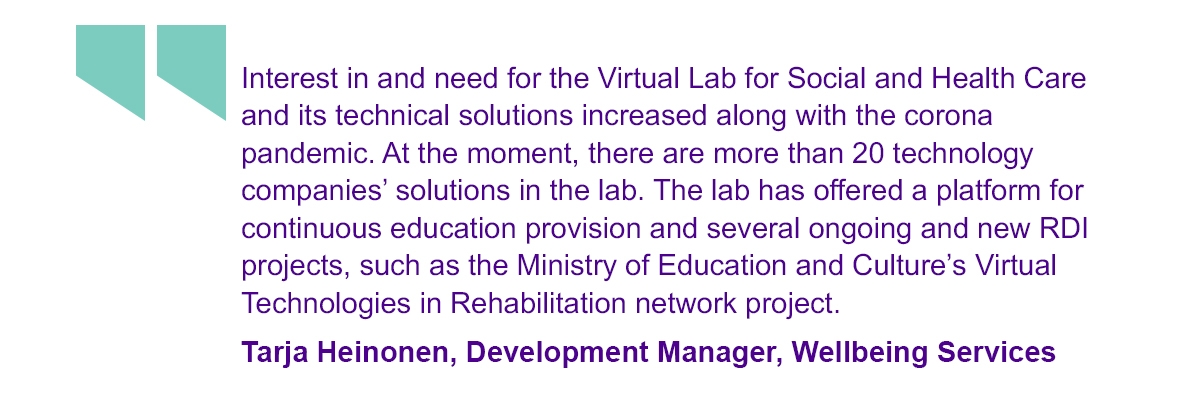
As a part of quality assurance, we implemented an RDI audit with our strategic partner Hanze University of Applied Sciences based on its model. The audit focused on the Circular and Bioeconomy Actions research group. As a new internal operations model, we started TAMK’s RDI Academy with the purpose of engaging our students in projects using a team coach model in a new way.
Y-Campus or the present-day HUBS, which produces multidisciplinary and team-based problem-solving skills and entrepreneurship skills, started to successfully carry out Innovation Sprint activities online last spring. The activities climaxed with an online Sprint Innovation Festival week at the end of the year. Y-Campus and Learning Lab offered challenge-based summer studies for our students who had troubles in finding summer training places because of the corona situation.
New openings in health care
In the field of health care, we developed social and health care companies’ operational culture towards involvement, communality and teamwork. TAMK coordinated the Occupational Wellbeing and Productivity Through Collaboration and Involvement project in 2018–2020. The project participants were six nursing organisations and a child welfare organisation.
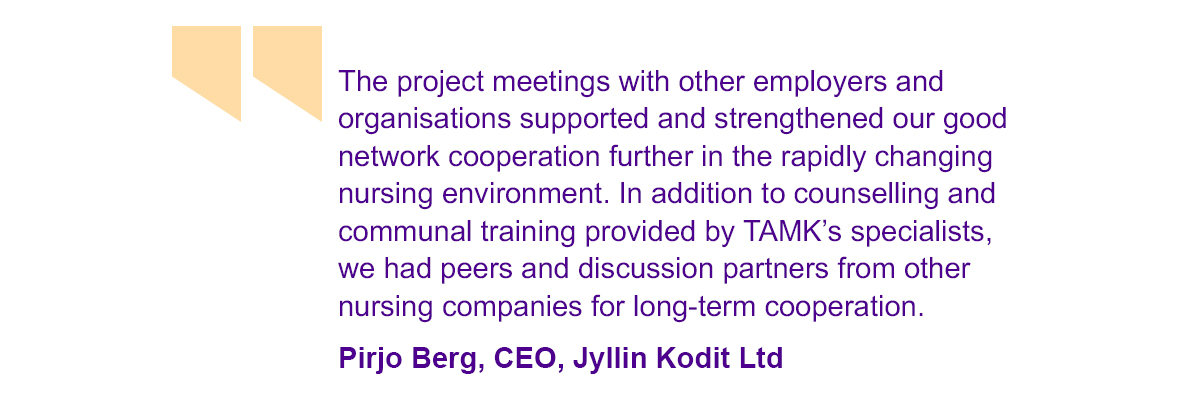
Public health nursing students Elsa Jääskeläinen and Niina Rentsu had the chance to cooperate with the Finnish Institute for Health and Welfare in a study-related development project, which was a continuation of their bachelor’s thesis. The students planned animations on the polygenic risk score based on the Finnish Institute for Health and Welfare’s suggestions and scripts.
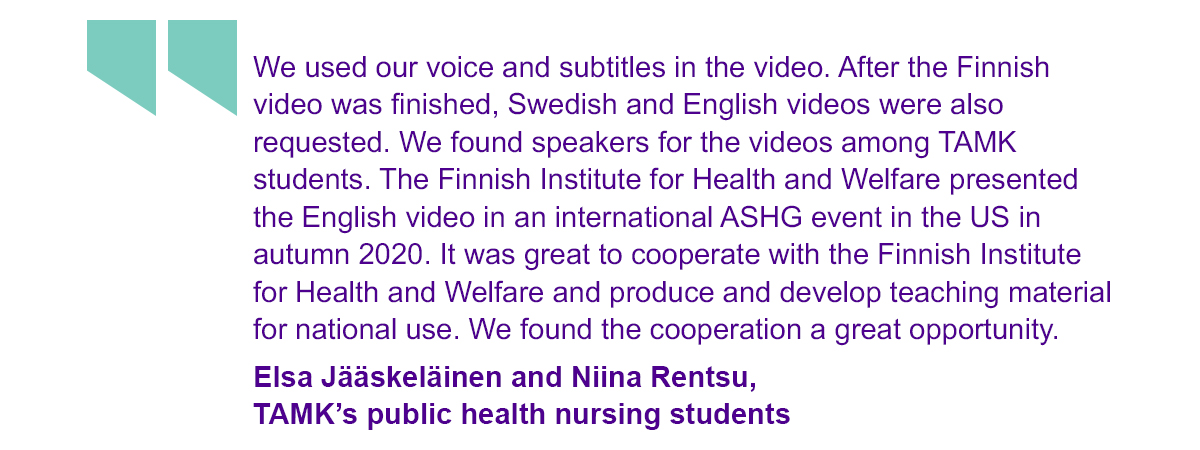
Text: Kirsi Viskari, Vice President. Editing: TAMK Communications Services.
Photo: Jonne Renvall
Read more about RDI
Partnerships
The City of Tampere and Tampere Universities strengthen their strategic cooperation.
The partnership agreement strengthens Tampere’s position as a pioneer of the media sector.
International blog
Working-life projects building personal competence during TAMK studies

